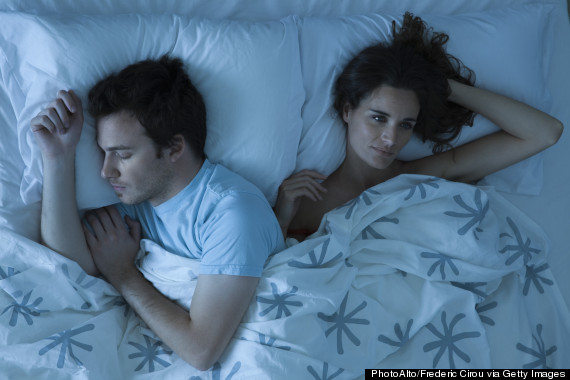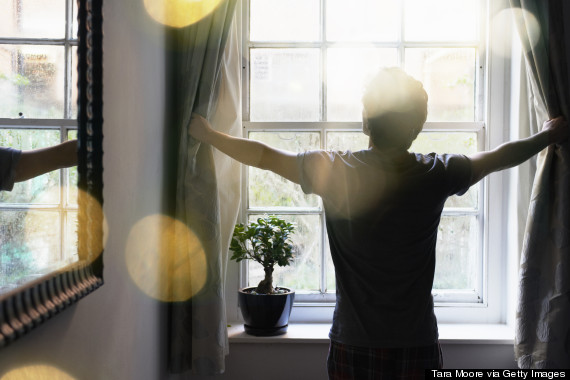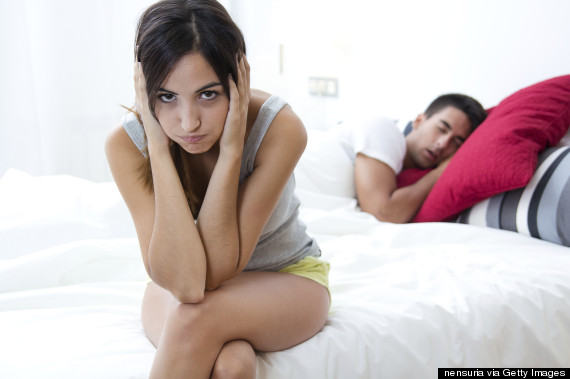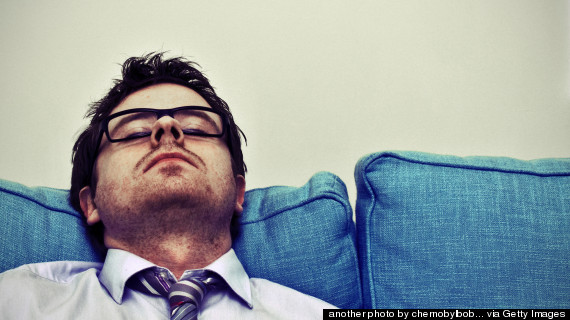
We all know by now that to procure the coveted seven to nine hours of shut-eye each night, we need to lower the thermostat, banish screens from the bedroom and give ourselves a little mindful wind-down time before turning off the lights. But do we actually abide by these scientifically proven sleep rules?
The National Sleep Foundation, a non-profit that has monitored America's sleep habits since 1991, recently debuted its inaugural Sleep Health Index to answer this exact question. By randomly surveying 1,250 U.S. adults across all demographics, the NSF gathered a profile of the country's habits, problems, attitudes and beliefs as they pertain to sleep.
Sleep experts and methodologists designed the survey, which was administered via telephone in September. Capturing an accurate glance of sleep in America, the Sleep Health Index will serve as a baseline for the NSF's future reports and public health efforts aiming to improve the nation's sleep habits as a whole.
Curious about what the NSF found? Here are seven key takeaways from the 2014 Sleep Health Index report.
The right quantity doesn't make up for poor quality.
While Americans reported logging an average of seven hours and 36 minutes of sleep each night, more than a third of people surveyed also labeled the quality of their sleep as "poor" or "only fair," the two lowest options in the survey's ranking system, and 20 percent of them said they did not feel refreshed upon waking up in the morning. What's more, of those who reported having "poor" or "only fair" sleep quality, 67 percent also reported being in poor general health.
Weekends aren't as restful as we think they are.
We tell ourselves that we will use our free mornings on the weekend to "catch up" on the sleep we feel we've lacked during the work week, but this survey revealed that we only sleep an average of 40 minutes longer on weekends than on weekdays. Not to mention that we can't actually make up for all the damage done by sleep deprivation with weekend recovery, according to this 2013 study from Pennsylvania State University.
Our average sleep and wake times are, well, pretty average.
The survey reported that the average bedtime for most Americans is 10:55 p.m. while the waking time is 6:38 a.m. during the work week. That data fluctuated slightly when comparing different age demographics; millennials, for example, reported the latest bedtimes of everyone surveyed, shutting down 1.1 to 1.4 hours later than other age groups.
We know the value of a cozy bed.
Despite research suggesting how beneficial sleeping in a cool, quiet and dark space can be, not as many people abide by those guidelines as you would expect -- only 47 percent of people sleep in a very quiet room and only 36 percent keep their rooms very dark. However, 56 percent reported sleeping on a very comfortable mattress.
You think you don't snore...
...but 40 percent of people surveyed acknowledged that they snore at least a few nights each week. Seventeen percent of people surveyed have been diagnosed with a sleep disorder of some kind, and an estimated 25 percent of the population suffers from sleep apnea specifically. On a more general note, women reported having more trouble falling asleep than men.
We sort of know the rules, but still don't follow them.
The survey asked each respondent to determine if the following statements were true or false: a) Adults need fewer hours of sleep the older they get; b) Successful people need less sleep than the average person; and c) Alcohol improves sleep quality. Only 36 percent of people responded with the correct answers, and even those who were right didn't necessarily get better sleep.
We're just kidding ourselves.
How many times have you proclaimed, "If only there were more hours in the day!" as you daydreamed of more sleep? Well, only 18 percent of those surveyed said they would choose to spend their time sleeping if they were allotted that extra hour. They are, however, making time for extra sleep in other ways: Nearly a quarter of people said they catch a short nap once or twice a week.
Related
Before You Go

The brain disorder, which occurs in about one in every 3,000 people, causes "extreme daytime sleepiness and sudden, irresistible bouts of sleep that can strike at any time," according to the National Institutes of Health.

Surfing the web, checking email or tweeting too close to bedtime, however, can send signals to your brain that disrupt the natural bedtime process and make it harder to drift off.

While many claim falling asleep to the TV helps them nod off, it can actually disrupt the sleep cycle. Your brain will still listen in on subtle changes in volume, even if you're asleep, Phillip Gehrman, Ph.D., CBSM, clinical director of the Behavioral Sleep Medicine Program at the University of Pennsylvania told The Huffington Post.
That could account for Clooney's trouble staying asleep. "Without question, I wake every night five times," he said.

Whether or not she really meant she'd been awake for a solid 72 hours or simply didn't sleep well three nights in a row, sleep deprivation has real consequences. Among the most frightening is a decrease in reaction time, which, if you're driving, could prove deadly.

Sleep apnea, which occurs when someone temporarily stops breathing during sleep, is more common in people who are overweight and/or have thick necks. At 7'1" and 325 pounds, Shaq certainly fits the bill.
Sleep apnea is often treated with a ventilation therapy known as CPAP (continuous positive airway pressure) that requires the snorer to sleep with a Darth Vader-esque mask. Shaq said he planned to wear his every night -- and joked he might wear it out on the town, too.

Reportedly among the ranks of mismatched sleep partners are musician and actor Kevin Jonas and his wife Danielle, according to In Touch Weekly. A friend of the couple said "Kevin and Danielle had never spent a night together until their wedding night, so she had no clue that he snores so loudly. She loves her husband, but now she sleeps in a guest room when he gets too noisy."
Snorers can try sleeping on their sides instead of their backs, using a pillow or a tennis ball sewn into a T-shirt to stop them from rolling over.


That may be true, but Bullock's extreme sleep deprivation could actually hurt little Louis. Severely skimping on sleep has been linked with a greater risk of making serious mistakes in doctors, police officers, truckers and others in positions that require long hours. To ensure you're giving little ones the best care, you need to take care of yourself first.